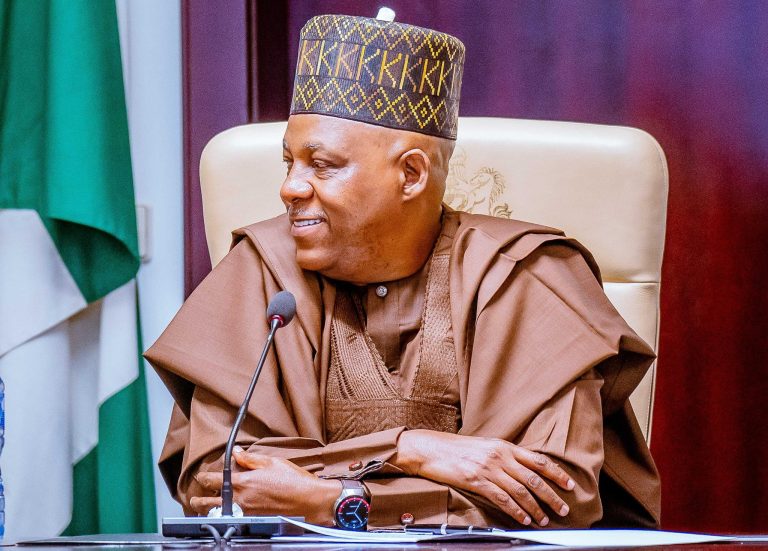Vice President Kashim Shettima has revealed that Nigeria is set to embrace the practice of Global Value Chains (GVC) at many levels, as part of efforts to attract investors into the country.
The Vice President stated this on Wednesday at a forum to welcome investors to a parley with Nigerian officials on the sidelines of the ongoing World Economic Forum in Davos, Switzerland, according to his spokesperson.
Furthermore, Shettima intimated to investors at the ongoing annual World Economic Forum that Nigeria has so many attractive sectors for private equity players, m venture capitalists, impact investors and competent contractors to invest in.
Describing Nigeria as an investor’s delight, the Vice President emphasised that President Bola Tinubu’s administration has put several policies in place to make the country conducive for investors.
- “Nigeria occupies an enviable position as the continent’s largest economy and with the largest population. Nigeria is currently repositioning its economy away from crude oil dominance, with deeper footprints in technology, arts, culture, creativity and industrialisation.
- “Recent developments in our energy sector portend that Nigeria is leading the region in energy security and energy transition. International and domestic energy companies are already engaging the global community and subscribing to the innovations of the future,” the VP explained.
He further stated that Nigeria remains open to engaging with willing nations on mutually beneficial and sustainable terms, in line with the best global practices.
- “We have our export, Dr Mrs Ngozi Okonjo Iweala heading up the World Trade Organisation, meaning that Nigeria must show to be a shining example in the best global trade practices.
- “Recently, Nigeria removed the infamous 43 trade items from foreign exchange ban, opening up the space entirely, in what is actually a very bold move, signifying full trade liberalisation,” Shettima added.
More Insights
The Vice President also noted that President Tinubu’s administration had liberated the downstream sector by putting an end to fuel subsidy and instituting a market-driven foreign exchange market.
Furthermore, Shettima said that the government is repositioning the nation’s energy sector as well as investing in digital technology and major infrastructural such as the rail system, roads, and new seaports.
What you should know about Global Value Chains
- According to the World Bank, Global Value Chain (GVC) is the international fragmentation of production. This implies that a single finished product can be manufactured and assembled in multiple countries, with each step in the process adding value to the end project.
- GVCs are regarded as powerful drivers of productivity, growth, job creation and increased living standards.
- Countries that embrace GVCs grow faster, import skills and technology, and boost employment, according to the World Bank.
- In addition, the adoption of GVCs provides an opportunity for countries to leap-frog their development process.

